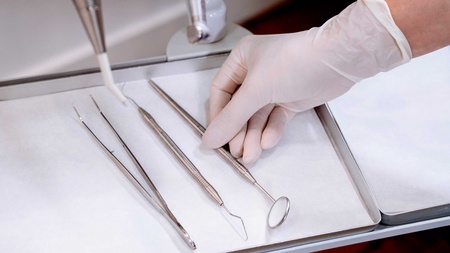Experts from across the UK - including The University of Aberdeen - have carried out a rapid review of evidence to help policy makers decide how to reopen dental services after the lockdown ends.
While the Covid-19 pandemic has resulted in the closure or reduction of dental services across the world, attention is now focussed on planning the re-opening and restructuring of dental services.
All the sources investigated by the team emphasised the need to focus on activities that minimise risk to staff, patients and the public but still support high quality clinical care.
More clarity, they say, is required on effective cleaning and disinfection processes, including the impact on patient scheduling and practice workflow.
Most of the sources investigated by the group recommended patient triage by telephone; some recommend temperature screening at reception.
The majority also recommended avoiding aerosol generating procedures wherever possible.
The group was led by Professors Craig Ramsay from the University of Aberdeen and Jan Clarkson from The University of Manchester.
Professor Ramsay said: “We identified sources from 11 countries and found relevant recommendations fell into five themes: practice preparation, personal protective equipment, management of the clinical area, dental procedures, and cleaning and disinfection.
“The review collates the range of recommendations related to each theme from the various sources identified. I would like to stress that this review is not guidance but, in the absence of robust evidence, it should assist policy and decision makers in producing national guidance for their own settings.”
Professor Janet Clarkson added: “There is now an urgent need to map out how dental services are to return to providing wider patient care. Given that we have only really known about Covid-19 for about 120 days, robust evidence to inform how to approach re-opening is scarce or non-existent.
“The same concerns exist across the world and therefore we decided to formally review the recommendations being produced in different countries as a resource for decision makers.
“Conducting this review has been a hugely collaborative international effort and I am extremely grateful to all those involved for working so hard to complete it in such short time.”


